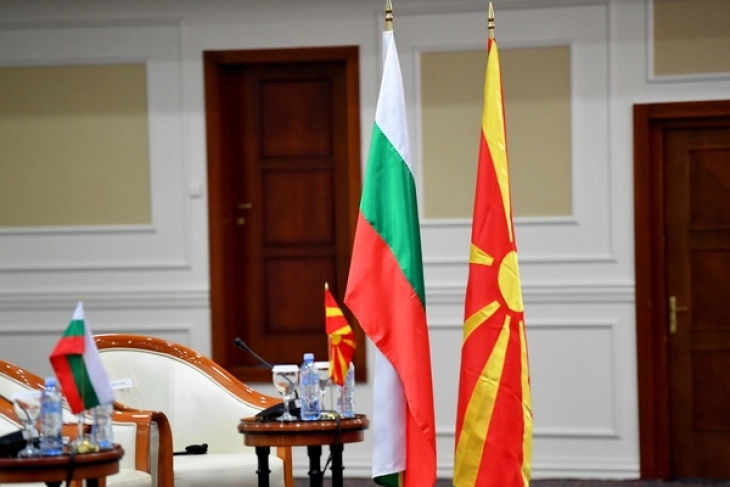FAZ: Bulgarian veto after veto
- Post By Nevenka Nikolik
- 19:16, 27 June, 2022

Skopje, 27 June 2022 (MIA) – The Bulgarian Parliament only strengthened its claims to Macedonia, while claiming it was allegedly lifting the veto on North Macedonia. It is here to stay for a long time, according to Frankfurter Allgemeine Zeitung (FAZ) in an article titled ‘Veto after veto’ published on Sunday.
Bulgaria continues to block North Macedonia’s EU integration, says FAZ in the article, Deutsche Welle reports.
“What was celebrated last week as the “lifting of the Bulgarian veto” on the start of North Macedonia’s EU accession negotiations is, in fact, its further aggravation. The Parliament in Sofia formally voted to lift the veto with a large majority. But this position included conditions which ultimately means a new veto. The government in Skopje realized this and rejected Bulgaria’s demands. The start of EU accession talks for North Macedonia is therefore just as unlikely as it was before,” reads the article.
The Sofia maneuver seems more like a Bulgarian-French sleight of hand intended to take Bulgaria out of the line of fire and give France’s ending EU Council presidency at least the semblance of success in the EU’s enlargement policy in the Balkans.
“Paris has been playing a major role in this story since 2019. After Macedonia changed its name to North Macedonia at Greece’s demand following difficult internal debates, Chancellor Angela Merkel, Ursula von der Leyen (Minister of Defense at the time) and other European politicians traveled to Skopje to support the name change, which was to pave the country’s European path. But that didn’t happen, among other things, because a few months later Paris was the driving force that blocked the start of accession negotiations with North Macedonia,” says FAZ.
The daily further analyzes what the Bulgarian Parliament actually voted on, and what Sofia's demands towards Skopje are.
“Thus, North Macedonia must fulfill the 2017 Friendship Treaty, and this should be monitored and confirmed by the European Commission. But the definitions of the obligations from the agreement are set by Sofia. Part of the Friendship Treaty, according to Sofia’s reading, is the expectation that North Macedonia accepts the Bulgarian narrative of a 'common history' of the two countries. In addition, Bulgaria demands that North Macedonia includes the several thousand Bulgarian minority in its Constitution,” says the daily, Deutsche Welle reports.
"(...) The Parliament in Sofia also confirms that Bulgaria will not recognize the existence of the Macedonian language in the upcoming accession talks with North Macedonia. Namely, Macedonian, according to Sofia's interpretation, is only a variant of Bulgarian, which must not be denoted by that name, the least in Bulgaria."
On the Macedonian part, FAZ continues, many of the Bulgarian demands are rejected.
“Demands aimed at the Macedonian language or identity are firmly rejected. This was also the essence of the Macedonian-Greek reconciliation. Macedonia changed its name to North Macedonia, but the language and identity, according to the 2018 agreement, remained Macedonian. Greece accepted that the Slavic majority population in North Macedonia was ethnically defined as Macedonian and speaks Macedonian, so demands to speak of “North Macedonian” people or language in the Constitution became meaningless. This is the essence of the Bulgarian position: To a great extent it concerns identity issues and, in fact, demands self-denial from the Macedonians, and therefore no government in Skopje can accept it,” reads the article.
As Deutsche Welle reports, there are also sustained demands from Sofia to North Macedonia, such as the opening of communist-era Macedonian archives. In former socialist Yugoslavia, Bulgarians were the target of repression. It’s understandable that history scholars in Bulgaria want to see the archives in Skopje.
“However, the justified or at least understandable Bulgarian demands are lost in the tangle of absurd claims that seem outdated. Such positions were only reinforced by the Bulgarian Parliament, while claiming it was allegedly lifting the veto on North Macedonia. In fact, the veto is here to stay for a long time,” FAZ concludes.







